Allison M. Dickson's Blog, page 13
September 8, 2013
I Need a Manager

This is not a job posting. It's a position with a candidate ready to fill it when the time is right My husband aches for the day when he can leave his 9-5 to help me manage my career once it becomes profitable enough, only I'm not sure he realizes just how busy he's going to be.
Right now, I'm running this ship on my own, and it's only in the last year that it has started feeling problematic. It doesn't always seem like I have a bunch going on, because I set my own hours and I work in my pajamas most days and spend FAR too much time goofing off on Facebook, but despite what people might think, this is indeed a full-time job all by itself. I know there are people in this world far busier than I am, and I am not interested in comparing notes or daily to-do lists with anyone, but suffice to say, my job keeps me busy and I haven't even begun to explore the space of what it means to be a working writer yet. One thing I'm discovering is if I quantify the amount of responsibilities I have, there are not quite enough hours in a day to fulfill them and remain caught up. It might be possible if I didn't also have a household to run and kids to raise, but then if I didn't have the lovely distraction of their sweet faces, I would probably be some twitching insane person rocking myself in a corner after the first week. I have no desire to be a workaholic, but I can certainly see how people wind up that way.
Apart from just writing books and stories, I'm also publishing a lot of my own work and taking on about 100% of the production aspects of that. This means everything from writing the actual drafts, implementing edits from beta readers, designing the covers, formatting the files, generating the metadata, getting the books uploaded onto Amazon and then maintaining and updating those files as needed. This was easier when I had four or five stories up, but now I have about 18 as of this writing, and it's becoming a wee bit cumbersome.
After that comes promotional stuff, which I wish I had more time to do, but can't because the next project is always calling. Because my novels take a bit longer to finish, I try to release a short story every couple months in order to keep the small audience I've cultivated engaged as well as bring in new readers. At some point, I am going to put together a publishing imprint, but I haven't had much time to put my head into the minutiae of that. I will, though, when I start delving more into print.
But wait, there's more!
I also maintain my blog on a semi-regular basis and try to keep up a social media presence on Facebook and Twitter to interact with friends, fans, and peers. Then I co-host a weekly podcast (Creative Commoners), which is not so much an extension of my writing life but still serves to keep me engaged in the public. I'm also still working on planning out my weekly video series, The Sauce, which will incorporate other aspects of the writing life.
While all this is happening, I have to maintain relationships with my colleagues. That means serving as a beta reader and/or editor, as well as doing some meager part to help promote their work too. I've also recently found myself entering a sort of mentor role for a few talented new writers. And that's ALL before getting into doing the editing and promotional work I have to do on the traditional publishing side of things with Hobbes End and eventually some other companies, which will soon be taking more of a central role in my life once Strings and The Last Supper are out. Oh, and then there is Colt Coltrane, the soon-to-be centerpiece of my indie publishing line. I would like to publish at least a dozen Colt stories, as well as arrange my short work into anthologies once I have more novels out in circulation.
And of course, while doing all that, I have about four or five novels to finish and a half dozen or so short stories. Oh, and then there is the "boring" stuff like accounting for royalties and sweating over taxes.
When I sit and think about all I've done, all I need to do immediately, and the things that are coming right around the next bend, my head starts to spin and I get a little nauseated. It's hard to think of everything alone, and I know I'm not doing as well as I'd like in a number of areas, namely in promoting and proofing and formatting and accounting, because if I don't stay on top creating the things that need promoting and proofing and formatting and accounting, then none of this will have a point. This is where the need for a manager comes in.
So the goal and the hope is within another year or two, all these seeds I've been planting for the last couple years will start producing a far more sustainable bounty of fruit, and it will then be possible to look at my husband one day and say: "Honey, you're hired."
Published on September 08, 2013 18:49
August 26, 2013
My Death Problem
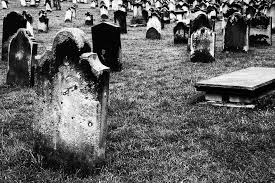
A mind great enough to anticipate its own mortality is also great enough to manufacture the most elaborate ways to deny its existence.
I've known for a very long time that I don't conceptualize death very well, but I didn't truly grasp how poorly I handled it until my cat died last month.
It was then that I discovered I can't make sense of death. My brain knows what it is and what it means. I understand, intellectually, that death is a ceasing of biological functions that support life and consciousness. I understand that we handle this concept rather flippantly in the way we portray it in movies and on television, in much the same way we portray sex, but reality is much grittier. It's also sloppier and often times uglier, and it hurts more than many actors can accurately express on a screen or stage. I think it's only after you experience a hard bout of grief that you can really appreciate how rare it is when a movie or a show can encapsulate the complexities of death and dying.
I'm even having trouble expressing it right now, so I guess I'll just use anecdotes. Back when I was about eighteen, someone I worked with died very suddenly. In life, he was one of the kindest and funniest people you'd ever want to meet. Jovial, vivacious, fun. He lit up the whole office, and one of the best things about coming to work every morning was seeing Ron, because no matter how grumpy everyone else might have been that day, you could always count on him to have a smile on his face. I used to like going into his office because he had really cool toys and action figures in there and he had an awesome computer. Then, one day, he left work a little early because he didn't feel well. The next morning, he didn't come back into the office. He didn't call. A few hours later, my brother (who was good friends with Ron), went to his house to check on him and found him lying dead on the couch. It was later revealed that he'd had a major heart attack earlier that night and that he had major coronary artery disease. This person, this hilarious and lively and kind man that everyone loved, was cut down in his prime by something that kills millions of people every year, but it didn't seem like it should have happened to HIM. Because on the emotional level, good things don't deserve to die. They should get to go on forever and ever.
The whole office was devastated, and my brother... I think even now, I have trouble putting myself in his head when I try to imagine what it must have been like walking in to find one of your best friends dead like that. I wound up seeing Ron's body too, because I went to his funeral where there was an open casket. I had never previously been to a funeral like this before. It was my first time seeing a real dead body, and part of me didn't want to see, but I knew I needed to. I crept up to the coffin along with everyone else, bracing myself to see what would almost certainly be my former work buddy just lying there looking asleep, because that's how it always looks in the movies.
But he didn't look that way. What I saw filled my heart with so much horror and confusion that I wanted to run out of there screaming. That wasn't my Ron. That was a dummy dressed up and painted up to LOOK like him. He looked like a soap carving that someone had spray tanned and rouged up in order to give the illusion of vitality, but his eyelids looked like they'd been glued shut. And his hands looked like something off a department store mannequin. And inside my brain this horrible tug-o-war raged on. "This is Ron?!" "No! This is NOT RON!" Back and forth back and forth. It got so that I would see that soap carving face of his every time I closed my eyes at night. He haunted my dreams, this dead body, this shell that once held a spark.
The memory has since lost some of its vibrancy, but it greatly affected my ability to perceive death, and even now the image of that wonderful man lying dead in his casket fills me with loathing and sadness. Without life, these bodies of ours are just... meat. So where did that spark go? Did it die with him?
Zip forward about fifteen years to last month when my family and I went to visit our beloved cat Angus after he had passed away so unexpectedly. I knew on some level that because Angus had died when we weren't there, we had to have a chance to say goodbye to him. It's just what we do when a loved one dies. Bodies lie in state so we have a chance to come to terms with reality. But what if the reality is so all encompassing and soul crushing that you can't really come to terms with it? My brain needed to know, without question, that our sweet boy was truly gone, but my heart wishes it could unsee Angus lying there a lifeless shell. My kids absolutely insisted on coming as well, and of course I allowed it. Because, again intellectually, you are not supposed to hide these things from people, kids included. Or especially. Death is not supposed to be this taboo thing (and I don't pretend for a second that taboo feelings, whether conscious or unconscious, contribute greatly to my misgivings about death and my inability to accept it), and I wasn't going to put my kids into the same dysfunctional state of mind regarding death that I've been in most of my life.
My heart rode at the top of my throat the whole way to the vet's office and I can still see myself drifting listlessly down the short hallway to the back room where they had Angus waiting for us. He was lying on a metal table beneath a white towel, and the vet tech slowly peeled it back to reveal the hump of beautiful gray fur and flesh that used to be my dear, sweet friend. And of course, I gasped. I think everyone did. Isn't that customary when you see something dead? They had groomed his coat until it shined, and he'd only been dead maybe 90 minutes, so he was still warm when I touched him. But his eyes, though closed, again had that "stuck shut" look to them. And his mouth, though not open, had the slightest gape to it that also just looked "stuck." Without the electrical impulses of his heart and brain to power him, he was just a stiffening body. Nothing more. I wanted so much to see those brilliant blue eyes again, but without life, they would just be dusty marbles.
And like the experience with my friend Ron, it's that face I see (and still see) almost every night when I close my eyes. Not Angus as he had been when he was alive--not even the very last time I saw him alive, when he was gasping for air and tranqed out of his mind. It's that dead face. That stiff countenance that signals beyond all doubt that life has vacated the premises. We all stroked his fur and kissed him and cried all over him. My daughter said she was begging and praying so hard for him to just wake up, because to her he looked like he was taking a nap. But to me, there was something very fundamental missing. He wasn't asleep. He was DEAD. And I couldn't understand how it was possible that the thing that propelled this beautiful creature through life, the thing that helped him eat and meow and play and twitch his ears and breathe in and out, could just be... gone. And then, when I brought his cremains home, I stared at this bag of pulverized ash mixed with larger rough fragments of white colored bone and again, that precipice of understanding was there. I knew what it was. I understood the biological process of rendering an organic life form down to its barest parts with heat. But I still could not grab hold of it and accept that this is how these things go. This is death. This is what it means to be dead. But how can these beautiful things that bring us so much joy just be reduced to something that fits into a baggie?
I look at Angus's urn now and it still baffles me that THIS IS MY CAT. This small jar now holds one of my dearest companions whose size had once been immense. It had defined him in so many crucial ways. And where did his essential self, the thing that made me love him so much, go? It can't just be GONE, can it? If the thing that gives us our spark can just be winked out like it never existed in the first place, then what is the fucking point of any of it?
And it's in that I suppose I can understand why people look to religion and other forms of spirituality, to wrestle with these mysteries. Because you feel like you have to tell yourself comforting little stories to make it so you can sleep at night. We tell ourselves they aren't "really gone," that they're "out there" or "watching over us," or that they're somehow reaching through a spiritual plane to affect things here, like moving our belongings or sending us messages in our dreams, and we look to mediums and other charlatans who claim they can see these departed spirits to confirm what our hearts so desperately hope, because the prospect that they ARE truly gone, that their lives, which affected us so profoundly, are just winked out like birthday candles, is so horrifying and sad that we don't want to face it. And we can't face it because one day, it's going to happen to us, and we can't conceptualize the idea that everything we've ever done or made or felt will just be wiped away like so much chalk dust.
And the thing is, I can feel that artifice tugging at me, telling me to just give in to these stories we tell ourselves, because it's just easier. And that only makes me bitter. I'm fucking pissed off that I can't know for sure. On the one hand, everyone we ever loved and lost is frolicking through a wonderful place where there is no pain and where there is only love and light, because that's the best thing we could ever wish for those we love most. On the other hand, we have to entertain the likelihood that we weave these illusions like bandages for our wounded hearts, and our brains--remarkable and powerful as they are--will do everything in their power to make these illusions true for us so that we never have to face the heartbreak that death is truly the end, that this life we have is our one go at it. And that life is a fragile, fleeting, fickle bitch of a thing. It's like a match head that lights up, flares for an instant, and then burns slowly for another moment or two before it gutters out. And maybe the barest parts of that flame and the molecules it altered move on to a more tiny and silent process our eyes can't see, but what does this mean for our minds? Do they dissolve into the atomic ether as well? Do we become neutrino soup?
Published on August 26, 2013 08:15
August 25, 2013
Are You Self-Publishing or Being Your Own Vanity Press?

What happens when no one can tell you no? Is it possible that your cranium can swell up like a pufferfish, causing you to block out all critical self-analysis?
Yeah, possibly.
Long before the advent of digital self-publishing platforms, most authors of books rejected by the publishing industry had little recourse but to put the manuscript in a trunk somewhere and start the next book. It was a maddening and humbling experience that forced writers to return to the keyboard and dig a little deeper. Whether it's the first novel or the second or the fifth or fiftieth, a lot of us are still going through that process. Sometimes we hit, and sometimes we strike out. And we go through this process over and over because we're obsessed and at least a little crazy--all the things it takes to survive in this business. Other people aren't doing that at all. Instead they've become assembly lines, spitting out books and putting them up for sale without ever first questioning whether or not it's any good. This is the quintessential definition of a vanity press.
Vanity presses have been around forever, but it's different now. No upfront costs are necessary to start your own publishing empire. Within minutes, you can upload your book and be part of a massive horde of indie hopefuls scraping together enough money a month to maybe buy a box of the newly resurrected Twinkies.
Rejection doesn't carry the same sort of sting it used to. A lot of people have stopped the submissions process altogether in favor of exclusive self-publication. Any why not? It's faster and a hell of a lot less frustrating, and provided your stuff sells, you get a much bigger cut of the pie. And rather than having a book you wrote sit in limbo for two years as it goes through the long and often heartbreaking submissions process, you can have it out for purchase almost immediately after you wrote it. If dozens of agents and editors tell you your book isn't good enough, so what? It'll now be available on the internet to scads of readers for infinity, all because you made it so. This can be a great thing, because sometimes those publishers and agents are wrong and unfair and the engine of publishing can punish a lot of good writers for no reason. There are far more writers than there are slots on a publisher's roster, and they pass on great stories every single day who then turn to famous rejection letters written to people like Kurt Vonnegut and Sylvia Plath and scream "See, those assholes don't know everything!"
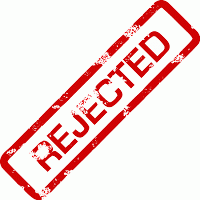
This is not always the case, though. In fact, MOST of the books that are forced into a trunk by a thick stack of rejection slips were forced there for a very good reason: they just weren't very good at all. The problem is it's very hard to tell which camp you fit into, both because we have trouble being honest with ourselves and because a lot of people close to us are reluctant to tell the truth about something that might hurt our feelings. None of us wants to admit that maybe what we wrote just wasn't good enough. We like to think that because we wrote it, it should be published. End of. Enter KDP or Smashwords, neither of whom will ever say no to you unless you write kiddie porn.
This is NOT enough to keep a writer honest. I know this now. I know this because if I hadn't had a team of editors going over the novels I have coming out soon, I might have self-published them nearly as they were (and that was after having a few people beta read each one BEFORE they went to the publisher), and I can't imagine what a pickle I'd be in right now. You can hire editors yes, but I dare say there is a difference between a single individual who accepts a one-time payment to deliver an opinion, and a group of people staking a huge financial risk in your writing. At any rate, this was the biggest wake-up call of my career. I took down two novels I published myself awhile back, because they just were so doughy in the middle, and I'm not sure they will ever see the light of day again. And that's okay. I'm currently employing extreme caution with my upcoming COLT COLTRANE AND THE LOTUS KILLER by having the same readers I've had on The Last Supper and Strings read it with their gimlet eyes (by the way, look at that gorgeous cover art by Justin Wasson, will ya)? No longer do I believe I am the only true arbiter of what's good enough, and I'm damn sure not going to put the readers in that kind of position either. It should be ready and thoroughly vetted LONG before it ever reaches someone's Kindle. My short stories also go through a great deal of evaluation now too, but that process is a lot simpler.
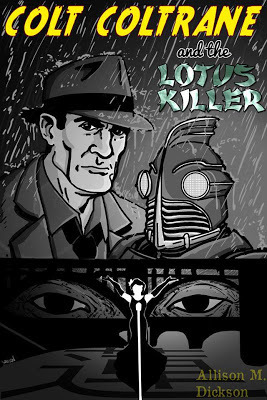
When publishing becomes a foregone conclusion, you're essentially saying that you get it right every single time. And NO ONE EVER gets it right every single time. Occasionally you will churn out a dud, and you have to be prepared not to release it. At least the the gatekeepers keep us honest and professional and force us to critically evaluate our work on a continuous basis. I know so many authors with published and well-received debut novels who struggled like hell to impress those same publishers with their sophomore efforts and failed. That's because no writer is going to ace it every time they come up to bat, and it's no different for you just because you're publisher.
So how can you tell if your book really good enough to self-publish?

The answer is you may never truly know for certain. It's all subjective. You just have to be honest with yourself and listen to your gut. And you have to listen extra hard to the people you trust most to tell you the truth. You have to ensure that every new thing you write is the best thing you've ever written up to that point. You have to ALWAYS be improving and challenging yourself, not getting lazy and treating your ability like something that has an end point. Ask yourself what it is about your book that will make people want to buy it. Ask it of your beta readers. You have to consider many of the same things an actual publisher considers, or at least find people who can think in that capacity.
There is a lot of luck in this business, with amazing books out there that have sold millions of copies after passing through dozens of agents and editors until it found the one lone soul who said yes. And there are books that broke through the gate after the first try that wound up being critical and commercial stinkers. Sometimes the gatekeepers get it wrong, but it's important not to extrapolate that thinking to every single story or book you write, otherwise we're talking pure vanity, and no one wants to read that shit. Self-publishing can be a really good thing, but sometimes you have to write your own rejection slip and move on to the next thing.
Published on August 25, 2013 19:44
August 11, 2013
On Fooling the Audience, and Other Musings About Plot Twists
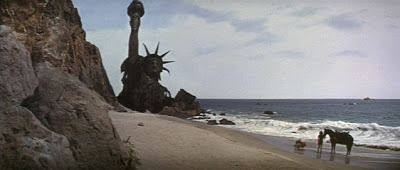
OMG! There are cliffs in Manhattan?!
Recently I had a short discussion on Facebook about the dichotomy of writing plot twists. On the one hand, you feel like such an asshole and a sellout even "going there" in this day and age, where everyone has come to expect some element that radically reverses their views about the story or the characters. But on the other hand, you're having too much fun to really care whether or not you're being trite. Most people in this discussion responded with plot twists they loved, and it really does seem that regardless of the ubiquity of plot twists (particularly exploited by Hollywood in recent years), a lot of readers still like having the rug pulled out from under them, at least a little. I think it's because, when done well, plot twists are thrilling. Whether we're talking about a surprise ending or an unreliable narrator or red herrings or the infamous Chekhov's Gun (seen most recently as the ricin cigarette in Breaking Bad)-- they stick in the memory. Essentially, a plot twist is like a heist job of the audience's expectations. You can either come off looking like George Clooney from Ocean's Eleven, or Carrot Top in... well, everything.
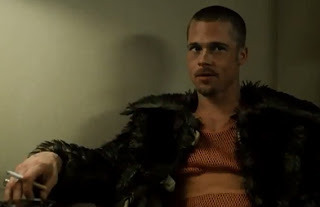
Holy shit. Brad Pitt ends up in a lot of these
sorts of things, doesn't he?
Mostly importantly, a great plot twist becomes a permanent part of the zeitgeist (The "Mother" in Psycho, "I see dead people" in The Sixth Sense, "The first rule about Fight Club is..." "What's in the box?!" from Se7en).
But make no mistake, plot twists are a gimmick with one major purpose in mind: to keep us interested in the story. They're like the pipe wrenches or the hacksaws of the writer's toolbox. We should have them on hand and know how they work, but we know we're probably not going to use them too often, unless we're building a giant cliche machine. Sometimes, though, a certain story comes into our heads, paired with a nebulous desire to weave a complex illusion fed by an ego-driven need to feel more like God than we already do as writers, and a plot twist is born. Sometimes it is amazing. A lot of times, it sucks.
Of course, every plot, every story, should have surprises hidden inside. Though wish fulfillment is still a powerful thing in fiction, if our stories are all predictable and formulaic (good guy faces off with bad guy in a battle and wins and/or "gets the girl"), people will become bored and disillusioned pretty quick. But the unexpected twists, helped along by good doses of foreshadowing that might not become significant until the surprise is revealed, engage the reader. They make them think more critically. Their eyes become sharp and gimlet-like. In many cases, provided they aren't pissed off (getting to that in a sec), they will want to re-read or re-watch it over and over again, just to gain a new appreciation for how it all came together.
I'm writing a book right now that is so heavily invested in throwing twists at the reader that I'm so afraid people are going to hate it. Maybe I feel that way because I also feel a little guilty for what I'm doing. I suck at surprises. I'm the person who wants to give everyone their Christmas presents early, in part because I love seeing people's faces when they finally discover something awesome, but it's also because I suck at long-term deception. You might argue that every time I sit down to write something, I'm involved in the art of deception, but it's different with this one. I'm not just leading you through a dark maze with a very dim flashlight. I'm making you question the nature of the maze entirely. And you will either believe it and want to give me a high-five for a job well done, or you will want to bitch-slap me with a blunt object.
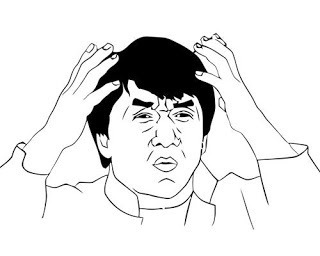
But why did they come to Earth if water is poison?
I think what angers people about plot twists is when they feel like a cheat, or pointless, or illogical. When it looks like you're expressly trying to fuck with people sans lube without giving them the benefit of a reach-around. See: The Life of David Gale or the ending of Tim Burton's Planet of the Apes. Actually, see all the plot twists on this Cracked list for great examples of what not to do.
Plot twists should probably not be attempted when you're feeling overly misanthropic. People will feel like you've wasted their time, that you played a joke on them, that you've treated them with contempt. You can always tell when a writer hates his or her audience. It's that surge of bilious rage you feel when you shut the book or the credits roll, along with the certainty that if you ran into that writer or director on the street, you would beat them for as many hours as it took to gain back the time you lost to their horrible story. The Village is 108 minutes long, M. Night. Just sayin'.
The hardest part about writing a plot twist, though, is being unsure if what you're doing is really holding up. It's so hard to judge it as you're going, because as the creator, YOU already know what's happening, and it can be very hard to put yourself into the role of an unaware audience member. Will people see it too early? Will they not see it at all? As writers, we're already too close to our work most times to really be able to tell if it's effective, but when you're building in extra framework and smoke and mirrors, it becomes even harder. The literary equivalent of performing delicate surgery on yourself. Don't do it alone. Don't enter into it lightly, with the certainty that you are completely in control, until you run it by people who aren't afraid to call you on your bullshit.
What are some of your favorite plot twists? Least favorite?
Published on August 11, 2013 09:25
August 2, 2013
Why I Am Still Amazon Exclusive: Simple Math

Last December, I expressed my enormous disdain with Smashwords and stormed out of my two-plus year relationship with them in a giant huff. You can read about that here. I said it was possible I could wind up going back to them after a certain period of time, but that it was unlikely.
Nearly eight months later, that remains true. I haven't gone back to Smashwords and I have no plans to, and I haven't diversified with other retailers either, like Nook Publishing. Ganxy was also a major consideration, but I backed out of that too when it became clear how unrefined their system still is. Same with Kobo. And even more so with Apple and Sony, because uploading to those stores independent of Smashwords is not only very difficult, but procuring the ISBNs they require, without the facilitation of someone like Smashwords who provides them free of charge, (or without having my own publishing imprint), becomes a costly enterprise that would not pay off anytime soon with short story royalties.
I also had the choice of asking Hobbes End to release my e-books The Last Supper and Strings through other ebook retailers, and they would have. But ultimately I chose to stick with Amazon there too. I'll explain all my reasoning behind these decisions in a minute, but I want to get something out of the way first.
I know this will put some readers out. I know in my own personal circle of friends about a half dozen people who do not buy ebooks from Amazon. They're Nook users or iBooks users. Not everyone has a Kindle. Not everyone wants to deal with Amazon or use the Kindle app. Hell, even *I* don't prefer to read on my Kindle or Kindle app, though I will if I have to. I predominantly use a Nook, a platform I bought into before I started selling e-books, because I wanted my books to have the EPUB format. I am certainly not an Amazon sycophant, and I'm not going to pretend that being with one retailer doesn't have certain drawbacks. But I'm not going to be too apologetic about it either, because I have made a conscious decision to do this, and after the better part of a year, I haven't come to regret it.
There ARE a few loopholes you non-Kindle people can exploit, however. I publish all my Kindle books without DRM. If you are the determined tech-savvy sort, you could buy the books from Amazon and convert the .mobi files to your preferred format using Calibre, Adobe, or any number of available online converters and then uploading this file onto your preferred device. Also, if you do want something badly enough, email me through the Contact form here on the site, and I will send you one file of your choice, free of charge. I only ask that in exchange for the freebie, you provide an honest review on GoodReads or Amazon. And don't upload it onto a piracy site, or I will cut you.
Some authors sell really well through other venues. Classically, I never have. I did okay through Barnes & Noble, but it took a long time to build up that audience, and the lion's share of my sales with them (and the same could be said with Sony, iTunes, and Kobo) were through my free downloads. People never reviewed at these sites. Barnes & Noble's review section is rife with trolls and anonymous spam. All told, at my best, I had maybe an average of 150 paid sales a year across those other retailers.
That might lead some people to say, "150 is decent. That's still money, right?"
Yeah. At $.35 a sale, that comes to an astounding $52.50.
Divide that by the amount of time I'd spend uploading and maintaining and marketing a collection of nearly 20 e-books on those sites, waiting on 1099 forms at the end of the year and paying taxes on on what amounts to mere cents, doing the appropriate year-round accounting, and basically preoccupying myself with an empty exercise that nets me less money than it costs to fill my gas tank, and it's FAR from worth it. Hell, I'm already working far below the Federal minimum wage, but I'm not going to waste my time any further on something that doesn't really work. It's a whole lot of effort to keep 1% of the reading populace (or the tiny sliver of that 1% that I manage to get) happy. If for whatever reason in the future I get hordes of readers hounding me to release my work on another platform, I will consider it. But as the market changes and major bookstore chains sink, and people read e-books on tablets that support multiple reading apps, I have a feeling I won't have to worry about that.
It just doesn't make sense on a practical level, on a fiscal level, on a "how much of my time do I want to put into being a publisher versus being a writer" level. The money I made through other retailers over the course of a year, I make in the course of a single month (and then some during my busy season) on Amazon, between actual sales and Kindle library borrows. With Amazon, I can focus my marketing like a laserbeam. I can stick with the Kindle name, which is the biggest one out there when it comes to e-books (like it or not). It makes my Tweets shorter. It means I only have to post one link to a product. It means I only have to check one page for my sales, ranks, and reviews. It means I only have to wait for one check to deposit (and it does so predictably on the same day every single month), and that I only need a single 1099 statement for my taxes. It means, when I have a book ready to upload, I only need to do one product page.
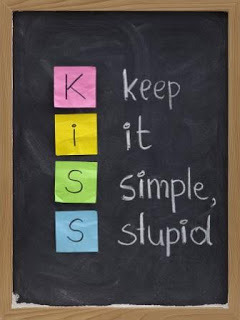
In a nutshell, it simplifies my life. After feeling like my brain was fragmented into several pieces trying to keep track of so many moving pieces, I only have one thing to focus on, and that's Amazon. The place were 90% of the e-book readership convenes anyway. This leaves me a lot more time doing the thing in this industry I like doing most: working on my next book or story. I like that. I made the same decision with my traditionally published books because Hobbes End has a good relationship with Amazon. They sell very well through there, and because the book will also be available in print, that means those who truly do want to read my book can do so in that most universal and non-proprietary of all reading formats. You can order it from Amazon, you can buy it directly from the publisher's website, you can walk into any major bookstore and order it. And, hopefully, it will be available in some independent bookstores too. Finally, since the publisher would be put at the same mercy of receiving monies from multiple retailers before they can filter down to me, it saves me from even more accounting nightmares. It streamlines the process.
Look, I'm not trying to say that every author should do the same thing I'm doing. Some people are far more industrious about this whole self-publishing business than I am, and they do well at it. We all have to strike a balance between the publishing work and the writing work in such a way that both things work effectively. This is what has worked for me. Perhaps if I had a manager or assistant or slave of some kind who could upload my books, track the sales, do the promoting, endure the headaches, and basically take over that whole operation so that all I had to do was wonder when my money was coming in. I might consider it. But at this stage of my career, this is where things are. I hope you come visit me over on Amazon.
Published on August 02, 2013 09:16
July 26, 2013
10 Stories Every Genre Writer Should Try to Write
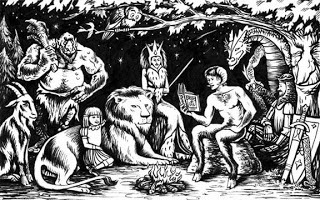
I've been thinking of putting together this list for awhile, not only so it serves as a helpful tool for me when I'm grasping at straws for ideas, but also for any other writers out there who are looking for a challenge or for a way to mix things up in the storytelling realm. There are many things I love about my job as an author, but I think one of my favorites is doing my own twist on well-established yarns. It's much the same way a chef feels when he or she comes up with a new spin on quiche or cassoulet or barbecue sauce. No, your story (or your dish) won't be the first of its kind, but it could be a whole new twist that gives that genre or concept a fresh face.
From the whodunnits to space operas to romances and classic Greek tragedies, stories have taken many forms over the millennia, but they've also taken on certain formulas and traditions that have been repeated time and again. This bothers some people, but to me they're all fish in the giant sea of the collective unconscious. It's particularly fun, I think, to experiment with some of these in the short form. Nearly every short story I have written has been an attempt to express myself in one of the themes or story types I'm about to list below. Maybe you can add to this list. Maybe you can come up with some story ideas of your own based on these concepts. Either way, I advise everyone reading this now to have fun and go forth and create!

1. Man vs Nature/Survival
From Robinson Crusoe to Call of the Wild to Castaway, the story of a person facing the elements has endured for a long time. Not only is it a great way to exercise your ingenuity and use of internal voice, but there is something appealing about making nature itself a character or a foe. One of the most memorable short stories in this genre is a sick short story by Stephen King called "Survivor Type," where a man stranded on a desert island goes to very...um... extreme measures to feed himself. Go all out with it. Nature is a real SOB. Don't limit yourself.
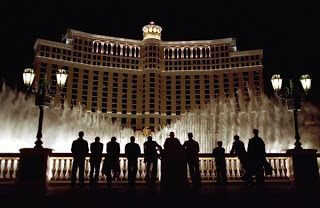
2. The Heist/Caper
I love a good bank robbery. I can't help myself. Same goes for casinos, jewels, and valuable art. It's almost sexy, the sneaking around, the devising of elaborate security systems and ways to break through them. Nobody has to get hurt in the commission of this crime, though that's not completely off-limits either. It's not just about the break-in. It's about the team, and how each of them have different abilities and weaknesses and conflicts among themselves. The balancing of internal and external factors all work together to drive up the tension. The key to a great heist is this: while the break-in should be memorable, the thieves should be even more so.
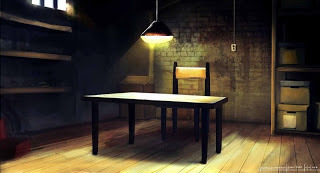
3. The Interrogation Room/Single Room
My desire to write my story "The Shiva Apparatus" was born out of the desire to set a story in a single room. A lot of authors have done this and you see it a lot in television dramas too. In the latter, it's done to conserve money by limiting the number of sets and locations. In writing, it forces an author to create a gourmet meal out of scraps. You don't have a whole lot of external factors influencing the story, so you have to really get into your character's mind and make the reader feel like they're part of something enormous.
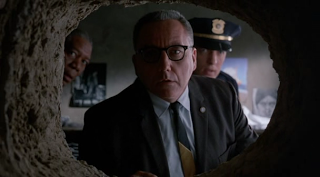
4. The Great Escape
Maybe they're in prison and someone gets out "Shawshank" or "Escape from Alcatraz" style. Maybe your character is in a POW camp or being held for hostage by some Colombian drug cartel. Oooor maybe it's on another planet entirely and a colony of Gorpsplerchers is being imprisoned by a gang of Purglesnerps from a neighboring moon. Whatever the case, the time-honored tradition of captive characters breaking free is always a fun arena to explore, for much the same reason heists are. Whether breaking out or breaking in, there is a lot of story and conflict at your disposal for your characters. The actual escape in "Shawshank" was very much secondary to the things that happened with the characters behind the walls, which was what made it so good.
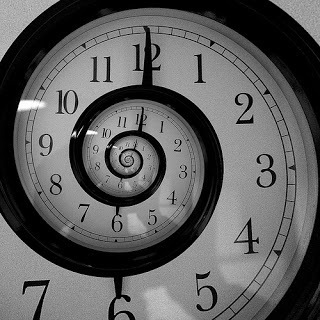
5. Time Travel
Yes, dammit. Time travel. You don't have to be a science fiction author to go there, either. Anyone read The Time Traveler's Wife? It's a device, to be sure, but there is soooo much fun you can have with it. A lot of people are intimidated and confused by the paradoxes any time travel scenario presents, but I encourage all writers to stop getting entangled so much in logic and realism and embrace the fairytale-making vehicle of wish fulfillment the ability to travel back and forth through time actually is. Thumb your nose at the standard questions. Let them work to your advantage. Confuse the shit out of readers while at the same time giving them characters and story so compelling they'll spend hours arguing with their friends about what you REALLY meant. Whether you're telling a thriller like the movie Looper or a pulpy adventure like Back to the Future or a love story like the aforementioned Time Traveler's Wife, make time your bitch. It's crazy but it's also fun, dammit.
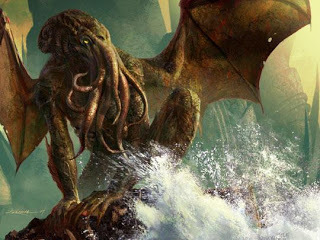
6. Monsters/Cryptids/Creature Feature
It doesn't end with giant fire-breathing lizards, Cthulhu, or Big Foot. Or vampires and werewolves, for that matter (though there is a lot of ground still to explore there if you're inventive enough). Whether your havoc-wreaking monsters are terrorizing big cities or quietly stalking campgrounds, making a monster from the ground up, or changing the rules on an established creature, is a lot of fun. Not only do you get to theorize on its origins and explore its strengths and weaknesses, you get to devise the right sorts of heroes who can stand up to it (or be eaten by it). Even if your creature is more standard, playing with locations and time periods and mashing up different genres can make even the staid Count Dracula seem fresh. Sometimes keeping old standards alive is the challenge in itself, and I think it's good to embrace that, but one thing is for sure, as much as folks like to complain about the ubiquity of certain creatures, people love their freaks of nature. Exploit that shit.
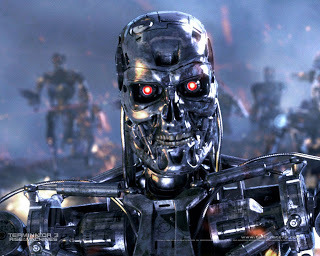
7. Technology Run Amok
Yes, it's been done. A lot. I have two stories in my repertoire ("Aria" and "Singularity" in particular) that deal with just this sort of thing, and you could even say that a few of my other stories also dabble in the idea of science gone wrong ("Dust" and "Under the Scotch Broom"). But you know what? They're also my top-selling stories, and I think that's for a good reason. As time moves on, they become more and more plausible. Plausibility scares the shit out of people. How many iterations of the Terminator franchise will it take to convince you that our own creations coming back to bite us in the ass is a genuine fear among us humans? Go there.
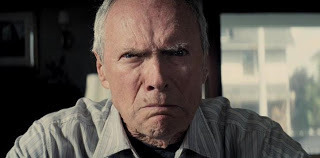
8. The Renaissance Man/Woman
Not precisely in how you usually hear this term (referring to someone who is a polymath, or good at many things), but more literally. We're talking the rebirth of a character. Taking a person who truly is villainous and unsympathetic and somehow making us root for him or her in the end is a great challenge to character building. If you need a good example, watch Gran Torino with Clint Eastwood. The guy is a bitter old dick, but somehow he manages to become the hero in the end. And his transition wasn't really forced either. And I think that's key. It's very easy to turn a story like this into something contrived and sappy. You don't want that. It takes a subtle hand to guide a reader or viewer along on a journey of making an unlikable person likable, but I think it all starts when you realize that ALL characters have things about them that are good and bad. Just like regular people. But it doesn't always have to end this way. Try it in reverse. The good man being reborn as a villain is very hot right now. See: Breaking Bad.
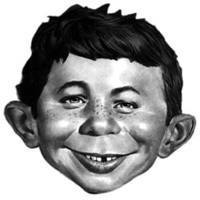
9. Satire/Parody/Comedy
There is a lot of power in ridicule, and it isn't always funny. I put comedy in this category because the two often bridge together, but satire can be (and I think should be) scathing. It can also be heavily unfunny. Just ask George Orwell or any number of political cartoonists. Bittersweet is an artform. The genre is designed to mock the status quo and test our assumptions. It's designed for the more abstract mind. But it can also make us laugh at ourselves if we're open to it. It takes a pretty deft wit and a sizable amount of genius and bravery to pull off a satire or a comedy, or to make people laugh. Whether this is the avenue you choose or if you decide to go with something closer to regular comedy, dark comedy, or slapstick, exercising the cleverness muscle is never a bad thing. We all need to take ourselves a little less seriously now and then. Or sometimes, we need that humor filter to make us feel a little less crazy.
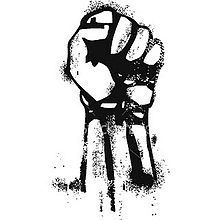
10. The Large-Scale Rebellion/David & Goliath
I suppose you could say a lot of the ideas I've listed already have this thread of rebellion running through them. Stealing, escaping, messing willy-nilly with space and time all seem to run against the status quo. Why not add a good old-fashioned war or uprising to the mix? I'm a rebel at heart, I guess. There are countless stories about groups, big or small, running big odds against a seemingly insurmountable foe. My novel coming out soon, The Last Supper, deals with this on a few different levels, and that book was at least somewhat inspired by Robert Heinlein's book The Moon is a Harsh Mistress, which details the way in which a Lunar penal colony moves to assert its independence from Earth. They quite literally have the whole world against them, and yet... watching how they ultimately prevail is very exciting. But you don't have to do it on a large scale. There are normal everyday people fighting against large and powerful corporations. Kids vs big bullies. Teenagers fighting a small city council for the right to DANCE! Er... We come to these stories time and time again because I think they most mirror life, or how we want to see it. We like triumph. Our culture seems to value the little guy standing up to the big one. It's how this country was founded, after all, but we're not the only ones.
Do you have any other story formulas or concepts you'd like to add to the list? Feel free to add them here, or discuss how you've tackled the ones already listed. What's your favorite?
Published on July 26, 2013 21:32
July 23, 2013
The Fatalistic Grieving Mind

You think about destiny and fate and spirit. You think about how hard it is to let go and then marvel at the comfort found in ashes and clippings of hair. You think of moving on, perhaps getting another pet. You think today isn't as bad as yesterday, and it's a hell of a lot better than the day before that.
We were going to scatter Angus's ashes, but when we brought him home in his temporary container yesterday, we realized we couldn't do that. We wanted him here with us. I needed him here with us. Having him in the home, even in this form, seemed to fill in at least a little of what had been missing since I came home without him Thursday evening already half immersed in grief because of the state I'd seen him in before I left the vet's office--skating on the thinnest possible ice. Even though I had that brief bit of jubilation when the vet called a few hours later to say Angus had improved, the shadow was still hanging here, the vet's ominous words that it could turn south at any moment ringing through my head as I sailed into sleep and woke up the next morning. And the vet's words ended up being true. I'm sure it wasn't the first time he'd seen this very thing happen. The shadow only proceeded to darken progressively after I received that horrible phone call and then went to visit Angus's body. The teary moments came harder and harder, the black hole yawning wider and wider until the woman at the pet cemetery handed me a box containing the cremains and keepsakes from my beautiful cat, my dear friend and companion.
Bringing him in here quieted the part of me that was always hyper-aware of where Angus was when he was alive, especially toward the end when his breathing had gotten bad enough that I could feel that shadow lurking over us along with a capering fear in the corner of my mind that I would walk into whatever room he was inhabiting and find him dead already. I no longer had to wonder where he was or who was handling him or if he missed me, or (after he died) if he was cold and alone and growing stiff in a dark place.
But I know where he is now. I no longer have to wonder. He is in a beautiful urn on our mantel, and I know for a fact he would like it up there, because he can see out the big front window and he can look out over the rest of the living room and even into my office and feel like the watchful king he was. Yes, I know he can't really see these things. I realize that they're just ashes. I know Angus is dead, and even if he exists in spirit form, it's in me and not an urn full of ashes. But please understand that even the non-religious among us need the comfort of those illusions, these rituals. I think it's human nature and I'm not ashamed of them. Perhaps one day I will release this little security blanket of mine, but right now it helps me cope and I'm clinging away.
My mom helped with everything. She made arrangements I was incapable of making. She helped me pick out the perfect urn today. She also helped me pick out the shadowbox and little frame I'll be using to display a collection of pictures and hair clippings and paw prints. With these rituals comes catharsis and healing. I don't know how I would have gone through any of this without her, frankly. I don't know what I would have done without my husband and his ability to just sit and just listen and stroke my back while I sobbed into a pair of plastic bags that Angus had been lying on for the last few weeks of his life, even leading right up to that fateful vet visit. Everyone should have someone guide them through this sort of darkness and I'm lucky to have the people I have.
Friday and Saturday were the hardest days. Sunday was better. Monday, when we brought Angus home, I felt a calm and invisible hand settle over my raw nerves and I found I could think of him and talk about him without breaking down into a quivering puddle. I felt strong enough to support my kids who are still feeling the sting of it all. I miss him so much, but somehow I'm able to muddle through that longing without becoming inconsolable. I can write, I can eat, I can even make that climb up my stairs at night and get into my Angus-less bed and fall asleep... though it takes a bit longer than usual and sometimes requires the help of a pill. I think of him or that horrific conversation with my vet playing over and over in my head again as I drift off, and those thoughts seem ready to jump into my head the moment I awake, but the storm clouds that would build up in my head and chest the longer those thoughts remained seem a little less full each and every time I let them rain. What's left now is a numbing residue that has settled over everything. It inures the heart but it seems to be blocking the hysteria I felt all this past weekend. I don't know if that's good or bad, but I just think it's part of the process.
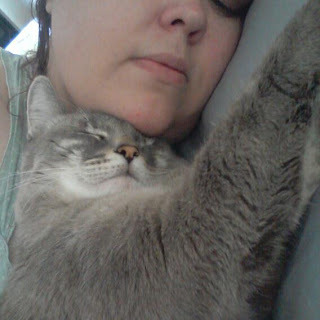
Saying goodbye to this is the hardest
Death is not something I've had a whole lot of company with. I have many friends and acquaintances and I have very strong bonds with a select circle of people, and up until now I've been very lucky that I haven't had to experience losing anyone very close. I've only been a spectator to other people's losses. Like when my grandmother (who I wasn't particularly close to in my adult life) died, or when my dad's best friend was killed in a motorcycle accident. My heart wept for my parents, but it's different when you're in the driver's seat. I'm not going to spend time weighing the differences between the loss of a fellow human and the loss of a beloved pet. You can't trivialize it. You can't tell me it isn't the same or "lesser." It just "is." It's a yawning black hole of despair from which you must slowly claw yourself day after day and you have to let yourself feel every single thing that climb is doing to you so that your mind can build defenses against it. And you can actively feel your neurons re-routing themselves the way the cops will reroute traffic when a bridge goes out. You can feel cognitive processes changing. The deep grooves that regular routines only a pet can wear into you start to smooth themselves out little by little.
And here you sit. A different person. The kind of person who now tearfully kisses baggies filled with cat hair and whiskers, who pets a receptacle of ashes and bone fragments and talks to thin air when she gets up every morning, all of these things comforting training wheels that will undoubtedly come off when the time is right. I don't plan to rush it. I just have to let it happen.
Published on July 23, 2013 13:47
July 19, 2013
Of Bobbed Tails and Unconditional Love
I am about to eulogize my cat. And like nearly every cat lover on the planet, I can proclaim that mine was the greatest kitty who ever lived. I told him that every day, in fact, and I'm pretty sure he believed it.
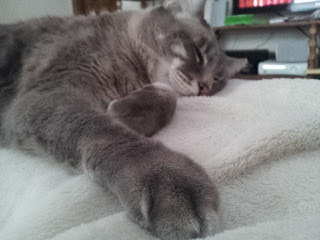
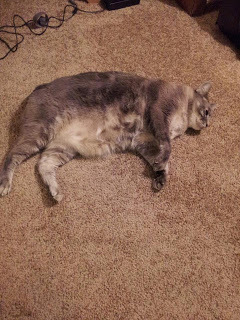
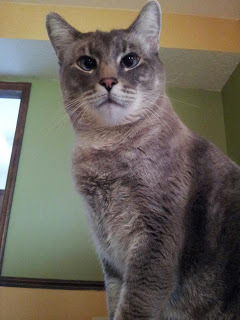
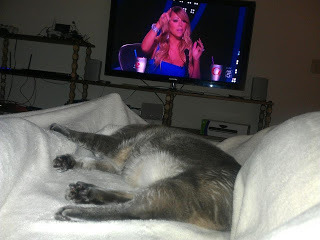
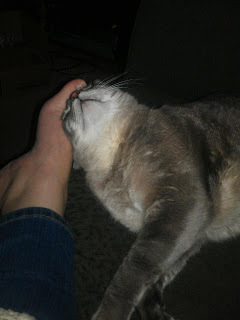 His greatness was displayed in many ways, particularly in his size. He was a behemoth. At last weigh-in, 21.7 pounds of love and mischief. That was the first thing people noticed about him, followed by his bobbed tail. And if you were lucky and he flopped over for you so you'd have the privilege of petting his sweet, soft coat, you would notice his spotted belly too. That was my favorite part of him, along with the friendly sparkle in his crossed blue eyes and the way his mouth had an upturn to it that looked like a grin.
His greatness was displayed in many ways, particularly in his size. He was a behemoth. At last weigh-in, 21.7 pounds of love and mischief. That was the first thing people noticed about him, followed by his bobbed tail. And if you were lucky and he flopped over for you so you'd have the privilege of petting his sweet, soft coat, you would notice his spotted belly too. That was my favorite part of him, along with the friendly sparkle in his crossed blue eyes and the way his mouth had an upturn to it that looked like a grin.
Angus was the truest companion. He was always there when I woke up (hell, he was always the one waking me up) and right now on the day of his death, I wonder how I'm going to sleep without feeling the purring warmth of him to help carry me off, or how I'm going to get up in the morning without the sound of his meows issuing from the hallway or the end of the bed. Every night, my and my husband's legs will be subconsciously shifted to the side of the bed as we make a space he will never again fill.
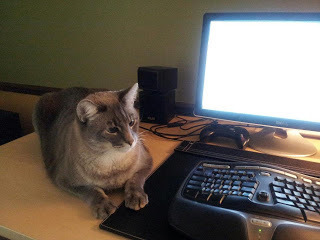 And that's what makes this so hard. Because the space he occupied in our lives and our hearts was so big. Not just in physical size, but in its sheer power. I work from home, so Angus was in many ways my daily partner. He gave me something to look forward to each day, the privilege of being his most constant caregiver. I knew just how he liked his food. I knew his routines. He had me up at nearly the same time every morning. He was my drill sergeant. There was no such thing as sleeping in with Angus in the house, even if he wasn't hungry. He just demanded your company. He didn't like to be alone. He was a social cat, in many ways like a dog. Knowing that he died without me is perhaps the hardest thing about this to accept. Because that was our unspoken agreement, that I would always have his back. But I didn't have it in the end, and that shreds me completely. He just went too fast, though... The pneumonia was too far advanced, and the panic he felt while in the hospital (where he needed to be, because his condition had just deteriorated to a place that I couldn't fix) triggered his rapid demise. Perhaps for his sake, it was better, but that feeling of failure, that guilt for not being there for him as he left this world, will haunt me like a specter. It can't be helped, no matter how many assurances that I did all I could, that he's in a better place, that he's no longer in discomfort, that I did the best for him that anyone could do. I cannot be assuaged of this. At least not right now. Perhaps with time it will mellow, but right now it just cuts and cuts again.
And that's what makes this so hard. Because the space he occupied in our lives and our hearts was so big. Not just in physical size, but in its sheer power. I work from home, so Angus was in many ways my daily partner. He gave me something to look forward to each day, the privilege of being his most constant caregiver. I knew just how he liked his food. I knew his routines. He had me up at nearly the same time every morning. He was my drill sergeant. There was no such thing as sleeping in with Angus in the house, even if he wasn't hungry. He just demanded your company. He didn't like to be alone. He was a social cat, in many ways like a dog. Knowing that he died without me is perhaps the hardest thing about this to accept. Because that was our unspoken agreement, that I would always have his back. But I didn't have it in the end, and that shreds me completely. He just went too fast, though... The pneumonia was too far advanced, and the panic he felt while in the hospital (where he needed to be, because his condition had just deteriorated to a place that I couldn't fix) triggered his rapid demise. Perhaps for his sake, it was better, but that feeling of failure, that guilt for not being there for him as he left this world, will haunt me like a specter. It can't be helped, no matter how many assurances that I did all I could, that he's in a better place, that he's no longer in discomfort, that I did the best for him that anyone could do. I cannot be assuaged of this. At least not right now. Perhaps with time it will mellow, but right now it just cuts and cuts again.
We have plans to scatter his ashes at a gorgeous nature preserve near our home. Although he was not an outdoor cat, I think he would like a place where he could gaze at all the birds and feel the wind on his fur, just the way he did when I had the windows open on a beautiful day. And I will carry on, because as in life, I don't think Angus would like the idea of my lying in bed when I could be up and around and giving love to something or someone.
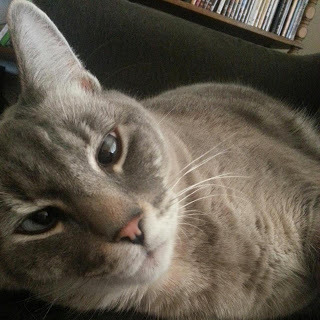
I have believed firmly, really since the day he came into our lives, that Angus is my totem. My spirit animal. He walks with me, even now. And because no matter how I might reject religions, I will never reject the spirit. I will always believe in the deepest part of me that the thing that give us all life, the ember that we all carry inside us, it has to go somewhere. It can't just wink out. I couldn't accept it before I lost the first person I loved with my complete and entire soul, and I refuse to accept it now. I will see my beloved Angus again someday, and we will always walk together.




 His greatness was displayed in many ways, particularly in his size. He was a behemoth. At last weigh-in, 21.7 pounds of love and mischief. That was the first thing people noticed about him, followed by his bobbed tail. And if you were lucky and he flopped over for you so you'd have the privilege of petting his sweet, soft coat, you would notice his spotted belly too. That was my favorite part of him, along with the friendly sparkle in his crossed blue eyes and the way his mouth had an upturn to it that looked like a grin.
His greatness was displayed in many ways, particularly in his size. He was a behemoth. At last weigh-in, 21.7 pounds of love and mischief. That was the first thing people noticed about him, followed by his bobbed tail. And if you were lucky and he flopped over for you so you'd have the privilege of petting his sweet, soft coat, you would notice his spotted belly too. That was my favorite part of him, along with the friendly sparkle in his crossed blue eyes and the way his mouth had an upturn to it that looked like a grin.Angus was the truest companion. He was always there when I woke up (hell, he was always the one waking me up) and right now on the day of his death, I wonder how I'm going to sleep without feeling the purring warmth of him to help carry me off, or how I'm going to get up in the morning without the sound of his meows issuing from the hallway or the end of the bed. Every night, my and my husband's legs will be subconsciously shifted to the side of the bed as we make a space he will never again fill.
 And that's what makes this so hard. Because the space he occupied in our lives and our hearts was so big. Not just in physical size, but in its sheer power. I work from home, so Angus was in many ways my daily partner. He gave me something to look forward to each day, the privilege of being his most constant caregiver. I knew just how he liked his food. I knew his routines. He had me up at nearly the same time every morning. He was my drill sergeant. There was no such thing as sleeping in with Angus in the house, even if he wasn't hungry. He just demanded your company. He didn't like to be alone. He was a social cat, in many ways like a dog. Knowing that he died without me is perhaps the hardest thing about this to accept. Because that was our unspoken agreement, that I would always have his back. But I didn't have it in the end, and that shreds me completely. He just went too fast, though... The pneumonia was too far advanced, and the panic he felt while in the hospital (where he needed to be, because his condition had just deteriorated to a place that I couldn't fix) triggered his rapid demise. Perhaps for his sake, it was better, but that feeling of failure, that guilt for not being there for him as he left this world, will haunt me like a specter. It can't be helped, no matter how many assurances that I did all I could, that he's in a better place, that he's no longer in discomfort, that I did the best for him that anyone could do. I cannot be assuaged of this. At least not right now. Perhaps with time it will mellow, but right now it just cuts and cuts again.
And that's what makes this so hard. Because the space he occupied in our lives and our hearts was so big. Not just in physical size, but in its sheer power. I work from home, so Angus was in many ways my daily partner. He gave me something to look forward to each day, the privilege of being his most constant caregiver. I knew just how he liked his food. I knew his routines. He had me up at nearly the same time every morning. He was my drill sergeant. There was no such thing as sleeping in with Angus in the house, even if he wasn't hungry. He just demanded your company. He didn't like to be alone. He was a social cat, in many ways like a dog. Knowing that he died without me is perhaps the hardest thing about this to accept. Because that was our unspoken agreement, that I would always have his back. But I didn't have it in the end, and that shreds me completely. He just went too fast, though... The pneumonia was too far advanced, and the panic he felt while in the hospital (where he needed to be, because his condition had just deteriorated to a place that I couldn't fix) triggered his rapid demise. Perhaps for his sake, it was better, but that feeling of failure, that guilt for not being there for him as he left this world, will haunt me like a specter. It can't be helped, no matter how many assurances that I did all I could, that he's in a better place, that he's no longer in discomfort, that I did the best for him that anyone could do. I cannot be assuaged of this. At least not right now. Perhaps with time it will mellow, but right now it just cuts and cuts again.We have plans to scatter his ashes at a gorgeous nature preserve near our home. Although he was not an outdoor cat, I think he would like a place where he could gaze at all the birds and feel the wind on his fur, just the way he did when I had the windows open on a beautiful day. And I will carry on, because as in life, I don't think Angus would like the idea of my lying in bed when I could be up and around and giving love to something or someone.

I have believed firmly, really since the day he came into our lives, that Angus is my totem. My spirit animal. He walks with me, even now. And because no matter how I might reject religions, I will never reject the spirit. I will always believe in the deepest part of me that the thing that give us all life, the ember that we all carry inside us, it has to go somewhere. It can't just wink out. I couldn't accept it before I lost the first person I loved with my complete and entire soul, and I refuse to accept it now. I will see my beloved Angus again someday, and we will always walk together.
Published on July 19, 2013 10:56
July 11, 2013
A Woman Writing in a Man's World
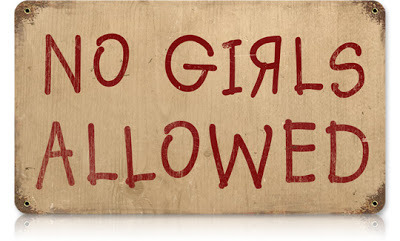
QUICK! Without consulting Wikipedia, Amazon, or any other helpful website, name all of the really famous female horror/fantasy/sci-fi authors you can think of. I'm not talking about indies or mid-listers you just like personally because they were recommended to you by a friend, or because you're one of those rare types that intentionally seeks out female authors so you can feel like you've "discovered" someone. I'm talking about the ones who have broken through into the mainstream, who can be lined up right alongside the likes of Stephen King or Neil Gaiman or Arthur C. Clarke.
If you listed Anne McCaffrey, Ursula K. LeGuin, Mary Shelley, Shirley Jackson, Anne Rice, J.K. Rowling, and Stephenie Meyer, you pretty much covered all the bases. A list on Forbes of the 10 most powerful female authors has Meyer and Rowling representing the speculative fiction category. But when you think about it, their fare is pretty light. Rowling's Potter books, as lovely as they are, are still children's books. And Meyer's Twilight series is romance first, vampires second. Where is the female equivalent of Isaac Asimov?
Where is the monumentally bestselling woman who can give George Orwell a run for his money in the dystopian household name department? Margaret Atwood, probably, but is she mainstream? In other words, would you find her books in a Target?
Mmmmmm... no.
The other authors on the Forbes list--Toni Morrison, Maya Angelou, Danielle Steele, Alice Walker--generally write in literature or romance genres. They dine with the likes of Oprah and her club of literary elites. If you think of the most famous female authors of all time (Austen, Woolf, Bronte, Alcott), you'll notice one glaring trend: they all died at least a century ago. And none of them wrote horror, fantasy, or science fiction. Though I find it a point of pride that it was a woman (Mary Shelley) who wrote what is considered the first horror novel (Frankenstein), so at least there is that. Crime and suspense are tough genres for women to break into as well. Oh they can. Just ask Gillian Flynn how it's all working out for her right about now, but generally women writing stories about people being killed and doing bad things are put into the thriller or mystery categories. Or sometimes even horror, because horror is still by and large treated as a marginal/pulp genre that only fringe readers like. This is why so many authors, like Stephen King, have fought against the horror label. Because in the commercial marketplace, it's anathema. It's like saying: "Only weirdos read my stuff."
It's not friendly, but it's true. But even then... name me some true female horror authors. Famous ones like King and Koontz and Barker and Poe and fucking Lovecraft.
Do you hear crickets? Yeah. I already mentioned Mary Shelley, so shut up. She's a fucking pile of dust in a box now. Give me one that is breathing RIGHT NOW.
Like I said, crickets. Even with this website I found that lists the 20 Greatest Horror Authors: NOT ONE FUCKING WOMAN.
That isn't to say that there aren't women writing these things. On the contrary, there are a LOT of women doing work, great work, in these genres. I know a number of them personally. But in the mainstream, they are sadly not mentioned or remembered alongside the "greats" (i.e. the ones with penises).
It seems that women, as a rule, get famous for writing stories that lots of women want to read. Nora Roberts (who has written crime/sci-fi under the gender-neutral name J.D. Robb) and Janet Evanovich and Danielle Steele and Toni Morrison and Alice Walker and the woman who wrote The Help can attest to this. Men, however, can get famous for writing stories that men AND women want to read. Which is another way of saying... MEN as a whole (don't start sending me hate mail saying that you're a man and you read women authors... a trend is a trend, and it's the rock to your scissors) don't seem to care much for female authors. And as much as we love the science fiction achievements of Ms. LeGuin, will that name really ever be synonymous with Clarke/Asimov/Heinlein? Names that, even if you're not a fan of the genre, you've probably heard?
No, it will not. Not really. Because the realms of strange worlds and future civilizations are generally for men to explore.
I'm not kvetching too heavily over this, I guess, and I'm not trying to sound like a man hater. In fact, a quick glance at my male author-dominated bookshelf would have me looking like a hypocrite in no time flat (but do I really have much of a choice if I'm reading mainstream speculative fiction authors?) It all just makes me wonder if seeing a woman's name on the cover of something in a speculative genre is a liability in building a male audience. Do men really see these titles and think "Oh, it's probably like a soap opera with lame emotional and touchy feely stuff in it" and then move on to the manly man sounding name on the other shelf?
Will people buy my books THE LAST SUPPER (sci-fi) or STRINGS (suspense/crime) when they come out if they see my not overly feminine but still obviously female name on it? Women might, but would men? Am I being taken seriously in my own genre? These things keep me up at night.
Seriously, I should have been in bed an hour ago.
I'm not the only one who feels this way, who wonders if her "nomme de femme" might be a factor in suppressing her book sales and also wonders what would happen if they put a man's name on all those covers. Some of these women are writing under male pseudonyms already. Like women authors of the 19th Century who knew for a fact that the publishing industry deck was stacked against them and that men would never read the work of a female author.
This makes me sad because it might still be necessary. It also has me trying to think of a good dude pen name for myself. Because while there are a lot of female authors dominating the charts out there in a lot of great categories of fiction, I think we're lying to ourselves if we say that it's equal across the board. I've long accepted that as a woman writing in "manly genres", the only domain in which I've ever felt creatively comfortable to be honest (even though I do feel like there is a feminine edge to most of my work) I will very likely never "break through." At least not with this name. I'm grateful to all my male fans. I'm grateful that my son, at 10-years-old, doesn't mind at all that the author is a woman or that girls are the main characters in the stories he reads. I hope people like this breed and multiply in greater numbers, if only so I can stop wondering if my female name is holding me back.
And if you're a male author and you're about to jump down to the comments and tell me how you can't break into the YA or romance or erotica genres because they're so dominated by female authors, welcome to a very contemporary problem. Women have been trying to break into mainstream fiction since it was invented. But hey, at least there are a bajillion other genres you can write in where this won't really be a problem for you. Meanwhile, I guess if I want to be famous, I can change my name to Alan. Or I can write about bondage sex fantasies with misogynistic corporate types.
Published on July 11, 2013 20:37
July 9, 2013
New Skin. Same Shitty Bones.

"Eat me, Blogger. EAT ME!"
"YOUR PATHETIC SOUL TASTES LIKE HAM!"
I hate you, Blogger.
You're like that really terrible spouse that comes in from work drunk and shits all over the bed every single day, but people can't leave because they've spent their entire lives living in that dysfunction and they don't know how to conduct themselves in any other way than as the co-dependent spouse of a useless moron.
I have a long history with Blogger, starting with my old blog Memoirs of a Gouda in 2005. Most of those posts have been imported over here, which is why if you happen to read any of my pre-2009 posts, you will see me referring to myself in the third-person as my cheesy former alter-ego. I've seen things at Blogger change a lot over the years, mostly for the better, but that change has been slow. The place does have its advantages, of course. It's easy to use. The dashboard is stupidly simple, especially compared to WordPress, which is as mind-numbingly full of stuff I could live without as the writing of Stieg Larsson. Hosting is free here, which is excellent. I only pay $10/year for my domain name, which was very simple to procure, and that is the only monetary upkeep this site requires.
But man are the templates still weak and boring. That's one thing WordPress has going for it. Of course, there are a lot of sites out there where WP templates have been adapted to Blogger use. I have to hand it to the enterprising code monkeys out there for making us derpy Blogger Luddites look a little more modern. I ditched the templates with the slideshows at the top of the screen, though. They're becoming so commonplace that they scream "Hey everybody! I have a WordPress site!" My respect for WordPress aesthetics only go so far.
The new digs are not ideal yet, but it's cleaner, brighter, and fresher looking. I stripped out a lot of the stuff that was on my former site and I'm still futzing around with the code. The portfolio page is going to get a revamp because those Ganxy showcases are clunky and slow to load. But these are the bones. I hope you like 'em.
One day I'll quit you, Blogger. I just wish I knew how.
Published on July 09, 2013 07:49



